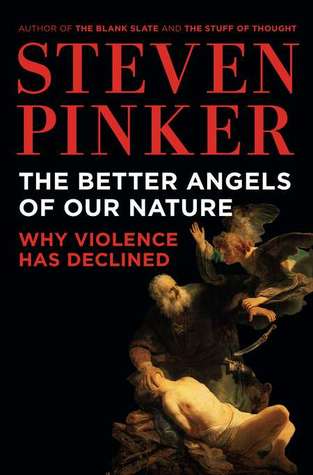Empathy is a Circle
Empathy is a circle that may be stretched, but its elasticity is limited by kinship, friendship, similarity, and cuteness. It reaches a breaking point long before it encircles the full set of people that reason tells us should fall within our moral concern. Also, empathy is vulnerable to being dismissed as mere sentimentality. It is reason that teaches us the tricks for expanding our empathy, and it is reason that tells us how and when we should parlay our compassion for a pathetic stranger into an actionable policy.
Self-control is a muscle that may be strengthened, but it can prevent only the harms for which we ourselves harbor inner temptations. Also, the 1960s slogans were right about one thing: there are moments in life when one really should cut loose and do one’s thing. Reason tells us what those moments are: the times when doing your thing does not impinge on other people’s freedom to do their thing.
The moral sense offers three ethics that can be assigned to social roles and resources. But most applications of the moral sense are not particularly moral but rather tribal, authoritarian, or puritanical, and it is reason that tells us which of the other applications we should entrench as norms. And the one ethic that we can design to bring about the greatest good for the greatest number, the Rational-Legal mindset, is not part of the natural moral sense at all.
Reason is up to these demands because it is an open-ended combinatorial system, an engine for generating an unlimited number of new ideas. Once it is programmed with a basic self-interest and an ability to communicate with others, its own logic will impel it, in the fullness of time, to respect the interests of ever-increasing numbers of others. It is reason too that can always take note of the shortcomings of previous exercises of reasoning, and update and improve itself in response. And if you detect a flaw in this argument, it is reason that allows you to point it out and defend an alternative.
Notes:
Folksonomies: empathy
Taxonomies:
/law, govt and politics/legal issues/civil rights (0.392044)
/art and entertainment/dance (0.375856)
/law, govt and politics (0.238705)
Keywords:
moral sense (0.933343 (positive:0.356139)), reason (0.754295 (positive:0.520212)), natural moral sense (0.742296 (positive:0.407333)), Circle Empathy (0.671021 (positive:0.491421)), moral concern (0.642809 (negative:-0.738642)), mere sentimentality (0.609493 (neutral:0.000000)), pathetic stranger (0.593988 (neutral:0.000000)), actionable policy (0.586552 (neutral:0.000000)), breaking point (0.582487 (negative:-0.738642)), inner temptations (0.580596 (negative:-0.484409)), ever-increasing numbers (0.572399 (neutral:0.000000)), Rational-Legal mindset (0.570316 (positive:0.486491)), basic self-interest (0.567710 (positive:0.441389)), social roles (0.566129 (positive:0.304944)), previous exercises (0.559439 (positive:0.646212)), new ideas (0.557682 (positive:0.706210)), thing (0.556461 (positive:0.214346)), greatest number (0.553382 (positive:0.800487)), unlimited number (0.551022 (positive:0.706210)), moments (0.478945 (neutral:0.000000)), people (0.467989 (negative:-0.738642)), tells (0.461537 (negative:-0.738642)), applications (0.454450 (neutral:0.000000)), cuteness (0.451555 (positive:0.294431)), elasticity (0.448500 (neutral:0.000000)), Self-control (0.445462 (neutral:0.000000)), similarity (0.443474 (neutral:0.000000)), harms (0.440828 (negative:-0.484409)), shortcomings (0.440307 (positive:0.646212)), kinship (0.440261 (neutral:0.000000))
Entities:
other applications:FieldTerminology (0.675518 (neutral:0.000000))
Concepts:
Logic (0.985917): dbpedia | freebase | opencyc
Philosophy (0.704300): dbpedia | freebase | opencyc
Ethics (0.591471): dbpedia | freebase
Reasoning (0.589764): dbpedia | opencyc
Sociology (0.583498): dbpedia | freebase | opencyc
Morality (0.530086): dbpedia | freebase
Social psychology (0.523564): dbpedia | freebase
Virtue (0.513950): dbpedia | freebase | opencyc





